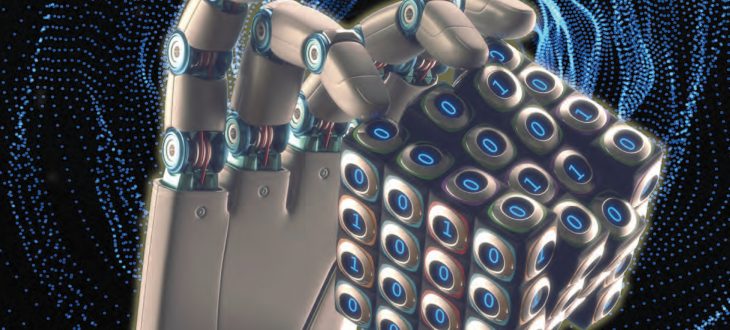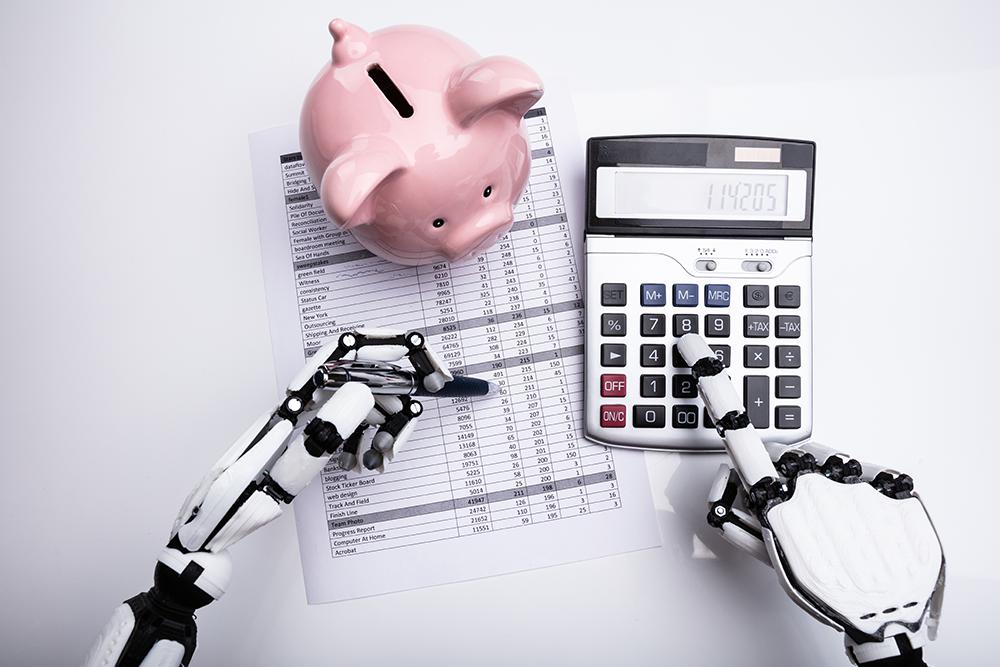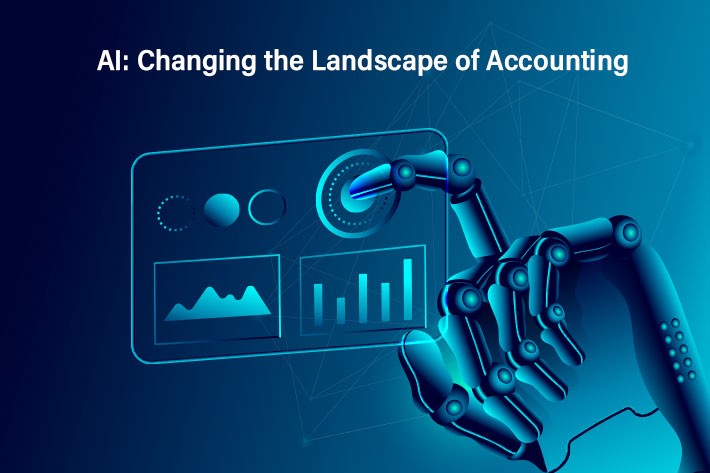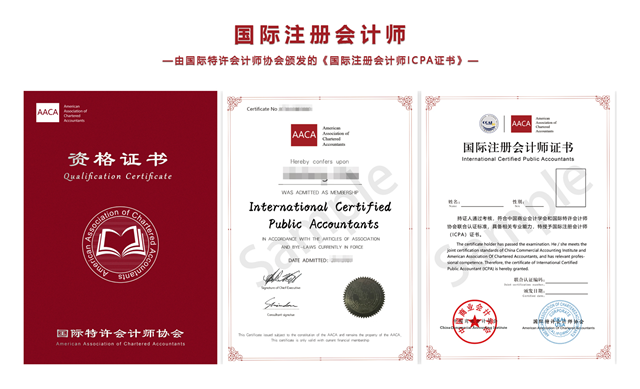審計中的機器學習Machine Learning in Auditing
Current and Future Applications
當前和未來的應用
Machine learning is a key subset of artificial intelligence (AI), which originated with the idea that machines could be taught to learn in ways similar to how humans learn. While humans are just beginning to comprehend the dynamic capabilities of machine learning, the concept has been around for decades. The proliferation of data, primarily due to the rise of the Internet and advances in computer processing speed and data storage, has now made machine learning a significant component of modern life. Common examples of machine learning can be found in e-mail spam filters and credit monitoring software, as well as the news feed and targeted advertising functions of technology companies such as Facebook and Google.
機器學習是人工智能(AI)的一個重要分支,人工智能起源于這樣一個理念:機器可以通過類似于人類學習的方式來學習。當人類剛剛開始理解機器學習的動態能力時,這個概念已經存在了幾十年。數據的激增,主要是由于互聯網的興起以及計算機處理速度和數據存儲的進步,現在已經使機器學習成為現代生活的一個重要組成部分。機器學習的常見例子可以在電子郵件垃圾郵件過濾器和信用監控軟件中找到,也可以在Facebook和Google等科技公司的新聞提要(News Feed)和目標廣告功能中找到。
Machine learning has the potential to disrupt nearly every industry during the next several years, and the auditing profession is no exception. Rather than relying primarily on representative sampling techniques, machine learning algorithms can provide firms with opportunities to review an entire population for anomalies. When audit teams can work on the entire data population, they can perform their tests in a more directed and intentional manner. In addition, machine learning algorithms can “learn” from auditors’ conclusions on specific items and apply the same logic to other items with similar characteristics.
機器學習有可能在未來幾年內擾亂幾乎所有行業,審計行業也不例外。機器學習算法不是主要依賴于典型的抽樣技術,而是可以為企業提供機會來審查整個群體的異常情況。當審計團隊可以處理整個數據總體時,他們可以以更直接、更有目的的方式執行測試。此外,機器學習算法可以從審計人員對特定項目的結論中“學習”,并將相同的邏輯應用到具有類似特征的其他項目中。
What is Machine Learning?
什么是機器學習?
Machine learning is a subset of artificial intelligence that automates analytical model building. Machine learning uses these models to perform data analysis in order to understand patterns and make predictions. The machines are programmed to use an iterative approach to learn from the analyzed data, making the learning automated and continuous; as the machine is exposed to increasing amounts of data, robust patterns are recognized, and the feedback is used to alter actions. Machine learning and traditional statistical analysis are similar in many regards, but different in execution. While statistical analysis is based on probability theory and probability distributions, machine learning is designed to find the combination of mathematical equations that best predict an outcome. Thus, machine learning is well suited for a broad range of problems that involve classification, linear regression, and cluster analysis.
機器學習是人工智能的一個子集,它使分析模型的建立自動化。機器學習使用這些模型來執行數據分析,以便理解模式并作出預測。機器被編程為使用迭代方法從分析的數據中學習,實現學習的自動化和連續性。當機器暴露在越來越多的數據中時,強勁的模式被識別出來,“反饋”被用來改變動作。機器學習和傳統的統計分析在許多方面相似,但在執行上有所不同。雖然統計分析是基于概率論和概率分布,但機器學習的目的是找到#能預測結果的數學方程組合。因此,機器學習非常適合于涉及分類、線性回歸和聚類分析的廣泛問題。
Supervised learning is used in situations where historical data can be used to predict future outcomes, such as determining which customers are most likely to default on their debt. Unsupervised learning is used where there are no labels on the output variables; the system is not “told” what the assumed answer is, but instead figures out the data patterns on its own. Unsupervised learning contains different techniques that can be used on transactional data (e.g., cluster analysis) and may be beneficial if used as part of the risk assessment process to discover previously unforeseen risks. There is also semi-supervised learning, which contains a combination of labeled and unlabeled output data.
監督學習被用于“使用歷史數據預測未來結果”的情況,例如確定哪些客戶#有可能拖欠債務。無監督學習被用于輸出變量上沒有標簽的地方;系統不會“被告知”假設答案是什么,而是自行計算出數據模式。無監督學習包含可用于交易數據(例如,聚類分析)的各種不同技術;如果能作為風險評估過程的一部分來使用,以發現先前未預見到的風險,則這些技術可能是有益的。另外還有半監督學習,它包含有標記和未標記的輸出數據的組合。
The predictive reliability of machine learning is dependent on the quality of the historical data that has been input. New and unforeseen events may create invalid results if left unidentified or inappropriately weighted. As a result, human biases can play an important role in the use of machine learning. Such biases can affect which data sets are chosen for training the AI, the methods chosen for the process, and the interpretation of the output. Finally, although machine learning has great potential, its models are still currently limited by many factors, including data storage and retrieval, processing power, algorithmic modeling assumptions, and human understanding and judgment.
機器學習的預測可靠性取決于輸入的歷史數據的質量。如果未確定或權重不適當,新的和不可預見的事件可能會產生無效的結果。因此,人的偏好在機器學習的使用中起著重要的作用。這種偏差可能會影響為訓練人工智能而選擇的數據集、為過程選擇的方法以及對輸出的詮釋。#后,雖然機器學習有很大的潛力,但其模型目前仍然受到許多因素的限制,包括數據的存儲和檢索、處理能力、算法建模假設以及人類的理解和判斷。
Current and Potential Future Uses
當前和潛在的未來用途
Although there are limitations to the current capabilities of machine learning, it excels at performing repetitive tasks. Because an audit requires a vast amount of data and has a significant number of task-related components, machine learning has the potential to increase both the speed and quality of audits. The machine-based performance of redundant tasks should allow auditors more time for review and analysis, which would give them a greater ability to focus on the areas of greatest risk, as well as a better understanding of the larger picture.
雖然目前機器學習的能力有局限性,但它擅長于執行重復性任務。因為審計需要大量的數據,并且有大量與任務相關的組件,所以機器學習有可能提高審計的速度和質量。以機器為基礎的冗余任務的執行應該讓審計人員有更多的時間進行審查和分析,這將使他們更能專注于風險#大的領域,并更好地理解全局。
In the future, machine learning technology could allow CPA firms to detect patterns that currently might otherwise go unnoticed. For example, a restaurant might use historical financial data related to satellite imagery of parking lots, guest count information obtained from point of sale systems, and restaurant employee schedules to demonstrate a strong correlation between high revenues and the number of cars in parking lots during peak hours, high customer guest counts, and high employee wages. By recognizing these patterns, the system could identify locations with revenues inconsistent with vehicle counts, guest counts, or wages. This would allow the auditors to focus on restaurants with inconsistencies rather than selecting restaurants on a random basis.
在未來,機器學習技術可以讓會計師事務所檢測到目前可能會被忽視的模式。例如,餐廳可能會使用與停車場衛星圖像,銷售點系統獲得的客人數量信息,以及餐廳員工時間表等相關的歷史財務數據,來證明高收益與高峰時段停車場的汽車數量、高客流量,以及高員工薪資之間的強相關性。通過識別這些模式,系統可以識別哪些地點的收益與車輛數量、客人數量或員工薪資不一致。
Challenges for Auditors
審計師面臨的挑戰
Audit firms and regulators must overcome several barriers in order for machine learning technologies to reach their full capabilities. Obtaining relevant and useful data (particularly nonfinancial data) from clients and external sources may be difficult. Due to statutory and regulatory limitations, auditors do not typically have access to vast amounts of information from data stores like Google or Facebook. Auditors are also bound by certain ethical and client confidentiality requirements, which may limit their ability to access the quality and quantity of data needed to build their training datasets.
審計公司和監管者必須克服幾個障礙,以便機器學習技術發揮其全部能力。從客戶和外部來源獲取相關和有用的數據(特別是非財務數據)可能很困難。由于法律法規的限制,審計人員通常無法從谷歌或Facebook等數據商店獲取大量信息。審計人員還受到某些道德和客戶保密要求的約束,這可能會限制他們獲取構建培訓數據集所需數據質量和數量的能力。
When relevant and useful data is available for use, auditors must understand and test the internal controls over data integrity and validate the completeness and accuracy of the input data in order to rely on the output. Data security and information integrity will be critically important in determining the reliability of the input data used in machine learning. Auditors will need to work with cybersecurity experts to determine that the client data is secure; otherwise, unauthorized access to financial and nonfinancial data may allow for inappropriate data manipulation that could skew the results.
當相關和有用的數據可供使用時,審計師必須理解和測試數據完整性的內部控制,并驗證輸入數據的完整性和準確性,以便信任輸出數據。數據安全和信息完整性對于確定機器學習中使用的輸入數據的可靠性至關重要。審計人員需要與網絡安全專家合作,以確定客戶數據是安全的。否則,未經授權訪問財務和非財務數據可能會導致不適當的數據操作,從而扭曲結果。
Because of the inherent limitations of machine pattern-finding, auditors will continue to need an understanding of the individual business and its industry, as well as the external business environment and societal forces. For example, user accounts might be the best predictor of revenues for companies such as Facebook and therefore should be given the appropriate weighting in the internal algorithm. Without judgment as to what to specifically look for, the authenticity of accounts and the presence of “bots” may not be detectable by machines and could lead auditors to reach incorrect conclusions. Auditors will need to understand and validate the completeness and accuracy of the input data in order to reach an appropriate conclusion on the output. Furthermore, there will always be potential blind spots when evaluating empirical evidence; therefore, an auditor’s intuition will likely continue to be an important source of knowledge.
由于機器“模式發現”的固有局限性,審計師將繼續需要了解單個企業及其行業,以及外部商業環境和社會力量。例如,對于Facebook這樣的公司來說,用戶賬戶可能是收益的#佳預測者,因此應該在內部算法中給予適當的權重。如果不判斷具體要找什么,賬戶的真實性和“機器人程序”的存在可能無法被機器檢測到,并可能導致審計人員得出錯誤的結論。審核員需要理解和驗證輸入數據的完整性和準確性,以便對輸出得出適當的結論。此外,在評估經驗證據時,總會有潛在的盲點;因此,審計師的直覺很可能繼續是一個重要的知識來源。
Future auditors will need to become more versatile and have a solid understanding of information systems, data science, and general business, in addition to an increasingly complex set of accounting and auditing rules and regulations. Whereas in the past audits have had a largely transactional focus, future audits will become increasingly interconnected. Audit firms need to be aware of changing auditor skillsets in order to help manage the disruption risks associated with machine learning technologies.
未來的審計師需要變得更加多才多藝,除了要了解日益復雜的一套會計和審計規則和條例外,還需要對信息系統、數據科學和一般業務有扎實的了解。過去的審計主要側重于交易,而未來的審計將日益側重相互關聯。審計公司需要意識到審計師技能的變化,以幫助管理與機器學習技術相關的中斷風險。
While machine learning technology affords auditors a greater ability to consider internal systematic relationships and external environmental forces, auditors must also exhibit a solid understanding of the input, processing, and output of data from a broader range of sources. In addition, while machine learning technology can provide significantly improved opportunities for auditors to explore their intuition, auditors must change their mode of thinking in order for these insights to be effective. Although it is impossible to foretell exactly how machine learning will ultimately change the audit process, now is the time to begin contemplating its current impact and future implications.
雖然機器學習技術為審計人員提供了更大的能力來考慮內部系統關系和外部環境因素,但審計師還必須對來自更廣泛來源的數據的輸入、處理和輸出表現出扎實的理解。此外,雖然機器學習技術可以顯著改善審計師探索直覺的機會,但審計師必須改變思維模式,以使這些見解有效。雖然無法準確預測機器學習#終將如何改變審計過程,但現在是開始考慮其當前影響和未來影響的時候了。
【AACA協會國際注冊會計師ICPA雇主直聘平臺】
響應國家戰略
搭建企業國際化高端會計人才隊伍
加快財會隊伍建設與人才轉型
(國際注冊會計師ICPA證書樣本)
原創編輯:ICPA中國辦事處
- 首冠教育集團榮獲網易新聞、網易教育盛典“金翼獎”2023年度綜合實力教育集團獎項
- 【考試公告】2024年管理會計師能力水平項目(夏季考試)相關事項的通知
- 【招生簡章】2024年北京國家會計學院高級管理會計師能力水平項目(戰略、風險級)招生簡章
- 考試計劃丨關于 2024 年首冠教育 1+X 大數據財務分析職業技能等級證書考試計劃的通知
- 重磅升級丨特許公認會計師公會(ACCA)北京國家會計學員“ESG與可持續發展管理師”能力水平項目正式發布
- 財政部北京監管局:“五個強化”推進內控管理工作
- 【考試公告】2024預算績效評價主評人統一考試相關事項的通知
- 關于公布高級管理會計師CNMA(2024.1班)面授通知
- 關于2024年社會穩定風險評估師考試的通知
- 關于公布2024年內控管理師專業能力(ICM)考試時間的通知








